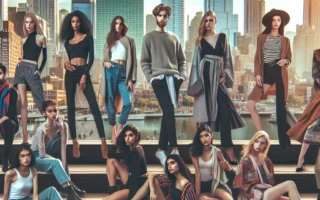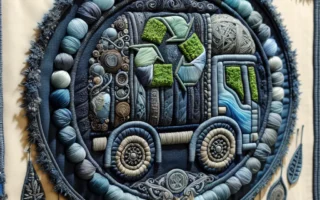The Evolution of Wearable Tech in Fashion
The Influence of Technology on Fashion Industry Trends has been a defining factor in the evolving landscape of wearable tech in fashion. As technology continues to advance, it has significantly impacted the way consumers interact with fashion. The integration of wearable tech in fashion has revolutionized the industry, giving rise to a new wave of innovative and functional clothing and accessories.
One of the most notable aspects of this evolution is the fusion of technology and fashion to create smart clothing. These garments are embedded with technology such as sensors, LED lights, and even heating elements, blurring the lines between fashion and innovation. From smart coats that can adapt to changes in temperature to dresses embedded with LED lights that change color with a simple tap on a smartphone, wearable tech has redefined the possibilities within the fashion industry.
Additionally, the emergence of wearable gadgets like smartwatches and fitness trackers has become increasingly popular, seamlessly integrating into everyday fashion. These tech accessories not only serve functional purposes but also act as fashion statements, with major fashion brands collaborating with tech companies to create stylish and sophisticated designs.
Moreover, the use of sustainable and eco-friendly materials in wearable tech has become a focal point for many fashion designers, leading to the development of innovative and environmentally conscious clothing and accessories. With the increasing demand for sustainable fashion, the integration of technology in creating eco-friendly wearables has been a driving force in shaping the future of fashion trends.
In conclusion, the evolution of wearable tech in fashion has created a symbiotic relationship between technology and style, driving the industry towards an era of innovation and functionality. As technology continues to advance, the influence of wearable tech on fashion industry trends will undoubtedly shape the way we perceive and interact with clothing and accessories.
How Social Media is Shaping Fashion Trends
In recent years, social media has played an increasingly impactful role in shaping fashion industry trends. Platforms such as Instagram, TikTok, and Pinterest have become influential hubs for discovering and sharing the latest fashion styles and inspirations. Fashion influencers and celebrities often collaborate with brands to showcase their products to millions of followers, swiftly propelling certain styles and items into the spotlight. The immediacy and global reach of social media enable trends to spread rapidly and transcend geographical boundaries.
Moreover, social media has democratized fashion, providing a platform for diverse voices and styles to be celebrated. Influencers and users from various backgrounds can now directly impact trends, challenging traditional fashion norms and fostering inclusivity. This has propelled the rise of sustainable and ethical fashion, as consumers increasingly demand transparency and accountability from brands, often mobilized by social media movements and conversations.
Additionally, social media data and analytics have revolutionized trend forecasting and market research within the fashion industry. Brands can now analyze real-time interactions and engagements to gauge the popularity of specific styles, colors, or designs. This invaluable data allows for more informed decision-making and agile responses to consumer preferences, thereby shaping future fashion trends.
In conclusion, the relationship between social media and the fashion industry is undeniably profound. From amplifying voices to driving sales and informing design decisions, social media continues to be a driving force behind the ever-evolving landscape of fashion trends.
Sustainable Innovations: Technology’s Impact on Fashion
One of the most significant influences of technology on the fashion industry is the rise of sustainable innovations. As environmental consciousness grows, fashion brands are turning to advanced technologies to create eco-friendly materials and production processes. From 3D printing of garments to the development of biodegradable fabrics, technology has revolutionized the way fashion is both produced and consumed.
Advancements in materials play a crucial role in sustainable fashion. For instance, the development of fabrics made from recycled plastic bottles or agricultural waste demonstrates the potential of technology to create environmentally friendly alternatives to traditional materials. Furthermore, the use of digital tools for design and prototyping reduces waste by minimizing the need for physical samples and iterations, thus contributing to a more sustainable fashion production cycle.
Moreover, technology enables transparency and traceability in the fashion supply chain. Blockchain, for example, has the potential to authenticate products and provide visibility into the origins of materials and the conditions under which garments are produced. This not only fosters trust between brands and consumers but also ensures ethical and sustainable practices throughout the industry.
In conclusion, sustainable innovations driven by technology have reshaped the fashion industry, prompting a shift towards more environmentally friendly practices. As consumers increasingly prioritize ethical and sustainable choices, technology continues to play a pivotal role in driving the fashion industry towards a more sustainable future.



